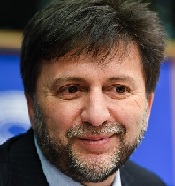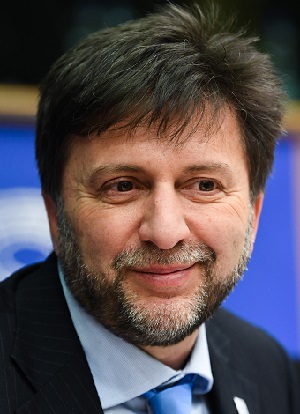
A patient suffering from a rare disease needs an average of five visits with different doctors to obtain a diagnosis, which is often not definitive. Many more steps are needed to define an effective therapy.
This is why it is very important for the the right information to reach the people who need it, at the right time. This is one of the objectives of the Rizzoli Orthopaedic Institute and its potentiated Structure for Rare Skeletal Diseases.

"We are the reference point of the Emilia-Romagna regional network and the coordinators of the European reference network (ERN-BOND) for skeletal diseases - Director of the Department of Rare Skeletal Diseases Luca Sangiorgi explains. - You can contact us to access the 'Day Service Outpatient Clinic', which is the most suitable model to respond to these patients' need for a diagnosis, check-ups or therapies obtained through specialist visits, instrumental examinations or therapeutic services with limited access, or even in a single day. Our specialists following the patient can take advantage of all the diagnostic and therapeutic potential of the hospital to reach a diagnosis in short timem, or to carry out therapies that require multidisciplinary interventions".
Access modalities are also designed to support the patient as much as possible.
"We have a dedicated telephone line, so people can speak to us directly and be sure to be carefully heard by trained operators. For the same reason, outpatient visits are also booked by calling our number. It is very important for our patients to know that they can constantly refer to us and keep us informed about the development of their pathology, also because many of them move with difficulty, because of the disease and of the travelling they would have to face, as several come from the whole of Emilia-Romagna and also from outside the region".
As the European Union launched in 2017 the European Reference Networks (ERN), "teams" of specialists connected at the European level, the Rizzoli Institute was entrusted with the coordination of the network working on rare orthopaedic diseases, called BOND (Rare Bone Deseases).
About Rare Skeletal Diseases
They are a heterogeneous group of hereditary connective tissue diseases, resulting from cartilage anomalies, which cause problems in growth and development. There are over 200 rare skeletal diseases, differentiated according to clinical, radiological and genetic characteristics.
The rarity of these diseases - their incidence ranges from 1/25.000 to 1/100.000 in live births - is a challenge for the healthcare system because it makes it more difficult to diagnose them, to provide effective drugs and to find appropriate treatments.
The ERN: 900 connected medical teams across Europe for the benefit of patients
European Reference Networks (ERNs) develop service models, online healthcare tools, solutions and innovative medical devices; they support research through extensive clinical trials and contribute to the development of new pharmaceutical products.
The Network for Rare Bone Diseases includes 38 centers in 10 countries, coordinated by the Rizzoli Orthopaedic Institute.


